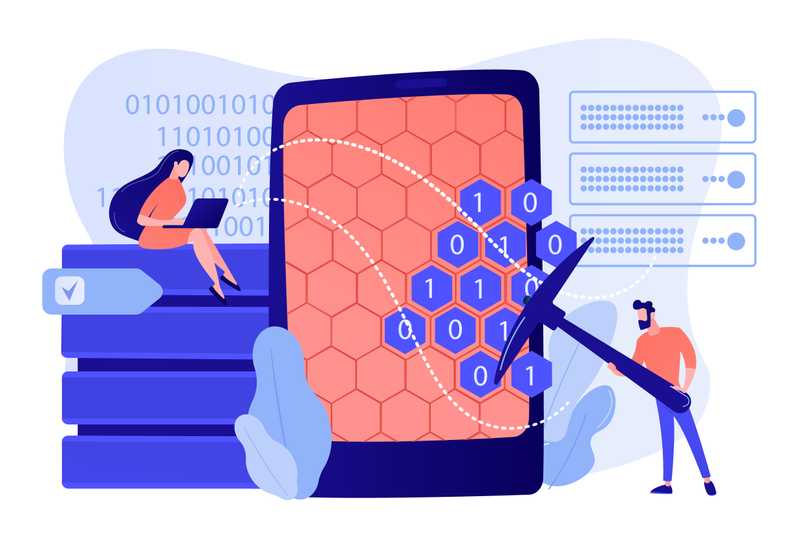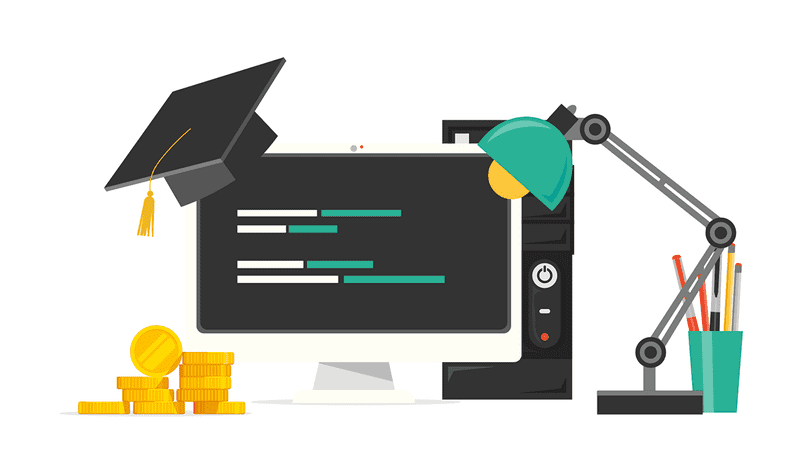How to Become a Data Scientist With No Experience

In this article
We all wish we had the foreknowledge to pick the perfect career and undertake the necessary preparation to get there, but real life isn’t always a linear path—and that’s part of what makes it fun. Moreover, with the fast pace of technological change, new industries and lines of work are emerging all the time.
Since data science is a high-growth, in-demand career field with strong job prospects, it’s a good time to explore whether becoming a data scientist is the right next career for you.
The great news is, you don’t need prior experience to become a data scientist. There are plenty of ways to acquire a data science skillset on your own. Becoming a data scientist is no longer a pipe dream. Here’s your cheat sheet to getting there.
Before exploring the needed skills to master to become a data scientist without work experience, let’s first define what exactly a data scientist does.
What is a data scientist?
Data scientists collect and clean large amounts of data, maintain easy-to-use dashboards and databases, interpret data to solve problems and run experiments, build algorithms, and present data to stakeholders in attractive visualizations.
Today there are many reasons to pursue a career in data science: a high salary, relatively stable and growing job market even during a global recession, and exciting problems to solve across diverse industries.
Is data science hard?
Whether or not data science is hard really depends on your background and whether you enjoy working with numbers and data. While data scientists do not need as much software engineering or machine learning as data engineers, you will need to learn how to code in order to build predictive models.
Data science has a steep learning curve, involving tough problems, a large amount of data, technical expertise, and domain knowledge, but luckily there are many free online resources to help you get started as an entry-level data scientist. Hopefully, you enjoy learning because data scientists are constantly upskilling and learning new technologies.

Do you need a degree to become a data scientist?
No. It is possible to learn data science without an advanced degree, or even a bachelor’s degree. Although most job postings list a master’s degree or Ph.D. in engineering, computer science, mathematics, or statistics, the demand for data scientists far outpaces the supply, meaning companies are open to hiring non-traditional applicants. In fact, many top companies like Google, Apple, and IBM no longer require college degrees for applicants.
If you are looking to break into data science without a degree, you can take online courses and certification programs or self-teach yourself through videos and modules.
Below you’ll find six steps for breaking into data science without previous experience.
How to Become a Data Scientist With No Experience
-
Polish up on your math skills
-
Learn a programming language (or two!)
-
Take on side projects or internships
-
Start as a data analyst
-
Work hard—and network harder
-
Explain your career transition to potential employers
Related Read: How To Get Into Data Science (Without a Data Science Degree)
Step 1: Polish up on your math skills
If you are coming from a quantitative background, data science should be an easy transition. Before analyzing data with high-tech tools, you need to get to the foundation of data analysis, which starts with plotting data points on graphs along the X and Y axes and finding correlations and trends between different variables.
To make sure you can write efficient code and draw accurate conclusions, here are some recommended math concepts to master:
- Statistical methods and probability theory
- Probability distributions
- Multivariable calculus
- Linear algebra
- Hypothesis testing
- Statistical modeling and fitting
- Data summaries and descriptive statistics
- Regression analysis
- Bayesian thinking and modeling
- Markov chains
Get To Know Other Data Science Students
Garrick Chu
Contract Data Engineer at Meta
Jonathan Orr
Data Scientist at Carlisle & Company
Abby Morgan
Data Scientist at NPD Group
Step 2: Learn a programming language (or two!)
Compared to other career fields, data science is more about what you know and how well you can prove your relevant skills and less about the prestige of your alma mater. The skill-based interview process tends to level the playing field for people coming from different backgrounds.
Once you have a solid foundation with math, you can begin to pick up a few of the must-know programming languages for aspiring data scientists: SQL, R, Python, and SAS.
Read this article for an introduction to necessary data scientist skills and which languages to prioritize.
- Python is a scripting language with libraries that enable you to wrangle, filter, and transform big data and unstructured data. Python has applications for web development, software development, deep learning, and machine learning. It is the most frequently used tool by data scientists.
- R is an open-source programming language useful for complicated mathematical and statistical calculations. It also allows for data visualizations and has a large support community to help you get started.
- SQL is a relationship management tool through which you can query for and join data across multiple tables and databases.
- SAS is an expensive tool used by large corporations for statistical analysis, business intelligence, and predictive analytics, but it is not recommended for individuals because of the cost. If you learn the other languages, you can easily pick up SAS on the job.
You can practice basic programming in Springboard’s free data analysis course and then complement those skills with more advanced programs, like the data science bootcamp.
Step 3: Take on side projects or internships
To build your resume, companies will want to see professional practical experience. As you start building out your knowledge base, you can apply your skill-set in real-world settings and get real-time feedback.
You can use freelancing platforms like Upwork or Fiverr, as well as search for part-time work or internships through social media and job boards. Kaggle also offers competitions with monetary prizes.
Before interviewing, make sure to practice solving coding problems on LeetCode and explore potential data science interview questions.
Show examples of past work samples on Github, LinkedIn or a personal website to build a good portfolio and a strong online presence.
It can be hard to gain experience without experience, but by leveraging online communities and starting small, you can prove that you have what it takes to turn data science knowledge into measurable business outcomes.

Step 4: Start as a data analyst
Data scientists and data analysts are not one and the same, and they are both career fields exploding in popularity.
Data analysts manage data collection and identify dataset trends.
- Data scientists not only interpret data but also apply skills in coding and mathematical modeling
- Data analyst positions can be easier to break into as a first job and can be a great launchpad to a data science career
For those interested in starting in data analytics, Springboard’s mentor-driven data analytics bootcamp covers framing structured thinking, analyzing business problems, connecting data using SQL, visualizing data with Python, and communicating analyses.
If you’re not sure which data course is the ideal fit, take this quiz to find out.
Step 5: Work hard—and network harder
Getting to know other data scientists is the best way to learn more about different career opportunities and maybe even meet your future team members. You can also discover what kind of company you’d like to work for (size, industry, culture), what projects appeal to you, and how to prepare for the job application process.
When starting out without experience, it can be easier to break into smaller companies, but larger companies in the tech industry with entry-level programs may have more infrastructure built-in for training and mentorship.
Another great option is to pivot into data science from another position at your company. If you’re in good standing, you can usually start networking internally and explore the opportunity to interview with a data science team, provided you meet the technical requirements.
As you set up virtual coffee chats and phone calls, you may find the conversations pique your interest in certain job postings. This opens the door to asking people in your network for personalized referrals. According to Careerbuilder, 82% of employers rated referrals as having the highest ROI, and many companies incentivize employers to be on the lookout for emerging talent by offering cash bonuses.
Step 6: Explain your career transition to potential employers
Data science is a highly interdisciplinary field, and most likely not all prior knowledge will be lost. Data scientists need to be able to connect their models to direct business impact. Although you should definitely focus on your data science experience in your resume and cover letter, you should mention past roles where you used Microsoft Excel or developed business, communication, collaboration, and other transferable skills.
When applying for data science jobs without experience, include a short summary section on your resume explaining your shift, using keywords, and listing courses you’ve taken, technical languages you’ve learned, and any project work you’ve completed, to frame your expanding data science skillset in the best possible light.
Since you’re here…Are you a future data scientist? Investigate with our free guide to what a data scientist actually does. When you’re ready to build a CV that will make hiring managers melt, join our Data Science Bootcamp that guarantees a job or your tuition back!





